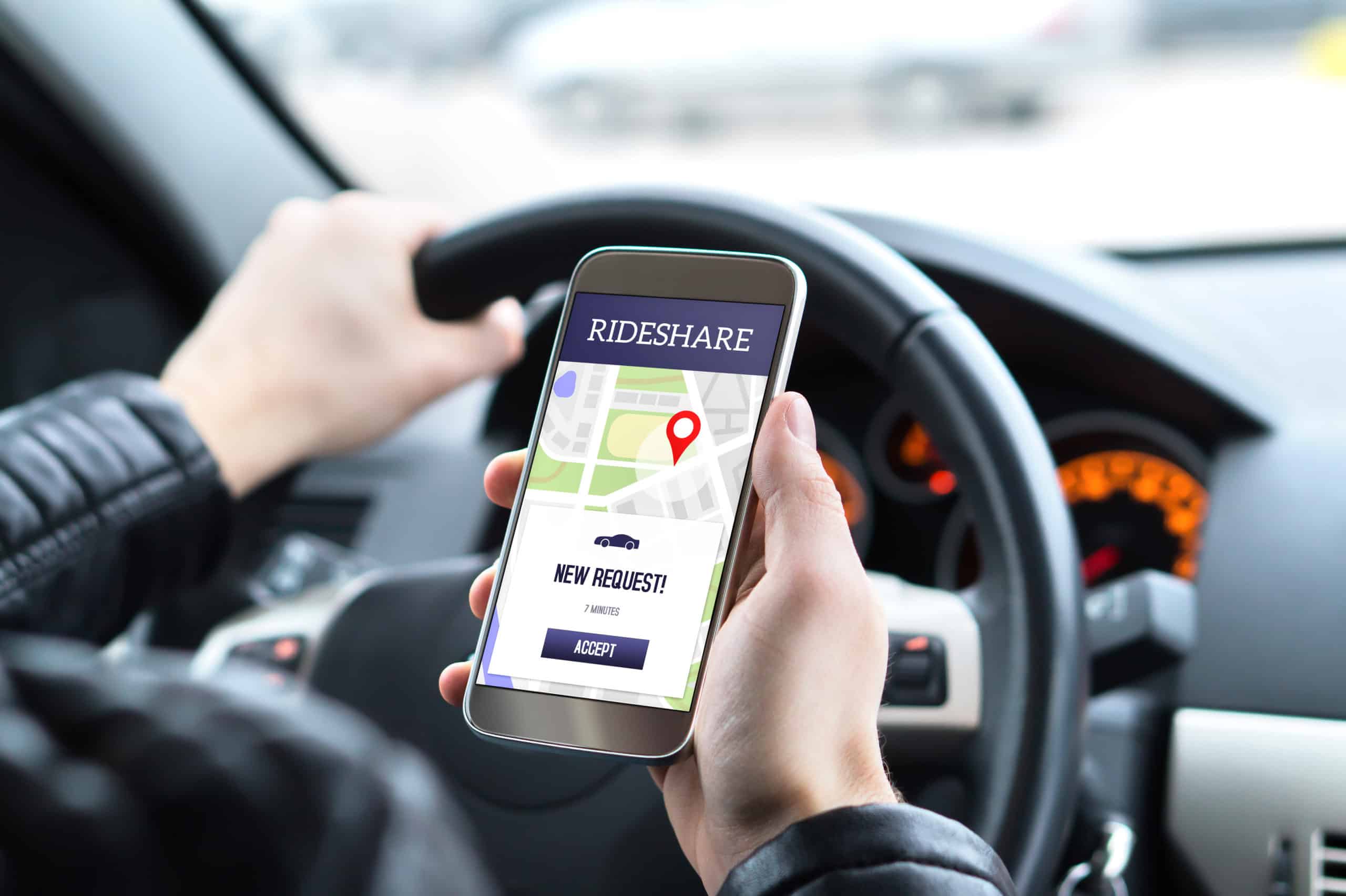Know Your Passenger Rights Before Using a Rideshare Vehicle
Since Uber started up in 2009 and Lyft launched approximately two years later, these rideshare companies have grown at an astounding speed. In the United States, 36% of its citizens have used a ridesharing app at least once. You may wonder how this transportation development affects you if you hop into a rideshare vehicle to get to a party and end up injured in an automobile accident.
Rideshare Popularity
Many willingly set aside any risks of riding in a stranger’s car for the convenience and advantages that Uber and Lyft offer. Riders can often get picked up sooner and reach destinations for less money than with traditional taxi services. In addition, customers can whip out their smartphones, and the phone app handles everything from logging the pickup location to charging the fare to the rider’s credit card.
Rideshare Insurance Quandaries
Everything rolls along smoothly — unless an accident occurs. If this happens while you are a passenger, who pays for medical bills or time lost at work? Determining fault and sorting out insurance is a challenge with any automobile accident, but the rideshare culture clouds liability even further.
Personal Versus Commercial Insurance
Insurance policies traditionally fall into either personal auto insurance for individuals or commercial policies for vehicles driven by owners or employees of businesses. With the advent of rideshare apps and the gig economy, streets became flooded with dual-purpose autos that sometimes functioned as personal and commercial vehicles.
Insurance companies charge more for commercial vehicle insurance because of increased mileage and risk; most rideshare drivers cannot afford commercial insurance. However, insurance companies do not cover rideshare drivers under personal policies while they are logged on the rideshare app.
Rideshare Company’s Responsibilities
Two factors may affect a rideshare accident victim’s decision to file a lawsuit against Uber or Lyft directly for injuries sustained as a passenger. In California, a rideshare driver is presently considered an independent contractor rather than an employee of the rideshare company. In general, a business bears less responsibility for the actions of a general contractor than for the performance of an employee.
The second factor involves the Terms of Service of rideshare companies, which go into effect when you log onto their apps. Both Uber and Lyft require the use of binding arbitration in any disagreements with the company.
California Rideshare Laws
In order to give some measure of protection to state residents who use rideshare services, California has enacted legal provisions enforced by the California Public Utilities Commission. These rules are outlined in detail in the Public Utilities Code.
Driver and Vehicle Safety Requirements
The code lists various requirements for rideshare drivers and vehicles to help keep passengers safe:
- Drivers must pass an extensive background check for prior criminal convictions.
- Rideshare companies must regularly check the records of their drivers for traffic violations.
- The vehicles used by rideshare drivers must meet age and condition requirements and pass annual vehicle inspections.
- Vehicles are required to meet increasingly tough emission standards.
In addition, Uber requires a minimum age of 23 for drivers while Lyft drivers must be at least 25 years old. Both companies require one year of driving experience.
Insurance Requirements
The good news for California Uber and Lyft drivers — and their passengers — is that add-on rideshare insurance is available for some personal auto policies in the state at lower rates than a commercial policy. This is possible since rideshare insurance only comes into play when the driver is logged onto the rideshare app.
The Public Utilities Code specifies insurance requirements that rideshare companies and their drivers must provide. If a driver does not add rideshare insurance to a personal policy, or gaps in coverage occur, the rideshare company’s insurance provides coverage.
- Like all California drivers, rideshare drivers must show proof of a personal auto policy with minimum liability insurance of $15,000 for one person’s injury or death, $30,000 for injury or death of more than one person and $5,000 for property damage.
- This personal auto policy is in effect when the driver is not working and has the app turned off.
- When the driver waits for a customer with the app turned on, the rideshare insurance becomes active but only for liability coverage of $50,000 bodily injury for each person, $100,000 per accident and $30,000 property damage.
- Once the app matches the driver with a passenger, rideshare insurance becomes fully active during the drive to pick up the passenger and while the passenger is in the car. Liability coverage increases to $1 million per accident, and comprehensive and collision are in effect if the driver’s personal policy includes them.
Obtain Legal Help for Rideshare Complexities
If you are injured in any car accident involving an Uber or Lyft vehicle, you need the knowledge of an experienced personal injury attorney familiar with this area of law. At the Law Offices of Brent D. George, we help you sort through the complications of proving negligence and determining whose insurance coverage applies in your situation. Call us today at (805) 494-8400 to schedule a free consultation.
Disclaimer: This article is intended for informational purposes only and does not constitute legal advice. For personalized assistance, please contact our office at (805)494-8400.


